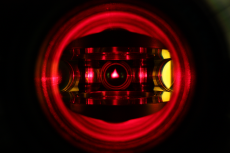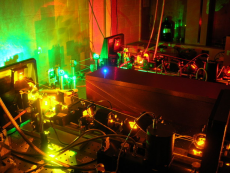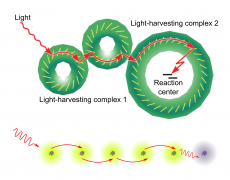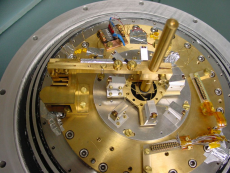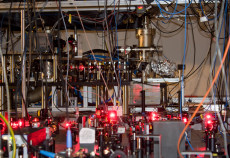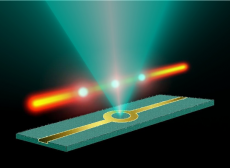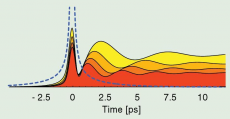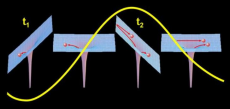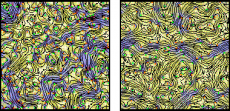CQD Special Seminar
25. March 2022 11:15
KIP, HS 2 (! new room)Quantum-Chaotic Sensors
Professor Daniel Braun
Institut für Theoretische Physik, Universität Tübingen
Quantum metrology has concentrated almost exclusively on using integrable systems as sensors, such as precessing spins or harmonic oscillators prepared in non-classical states. Here we show that large benefits can be drawn from rendering integrable quantum sensors chaotic, both in terms of achievable sensitivity as well asrobustness to noise, while avoiding the challenge of preparing and protecting large-scale entanglement. In the presence of dissipation, a stationary non-equilibrium state can be reached for large times that contains substantial amount of quantum Fisher information about the parameter to be measured, while without chaotic driving the system has long decayed to its ground state. Classically, such a state corresponds to a strange attractor with a filigrane, fractal structure.
After demonstrating the principles at the hand of the “kicked top”, we apply the method to spin-precession magnetometry and show that the sensitivity of state-of-the-art magnetometers can be further enhanced by subjecting the spin-precession to non-linear kicks that renders the dynamics chaotic [1,2]. Going beyond periodic kicks, we demonstrate that further improvements can be achieved by optimizing the individual kicking strengths with reinforcement learning [3].
References
[1] Lukas J. Fiderer and Daniel Braun, Nature Communications 9, 1351 (2018).
[2] Lukas J. Fiderer and Daniel Braun, Conf. Proceedings „Optical, Opto-Atomic, and Entanglement-Enhanced Precision Metrology”, 10934, 10934S (2019); arXiv:1903.02393 [quant-ph]
[3] Jonas Schuff, Lukas J. Fiderer, and Daniel Braun, NJP 22, 035001 (2020).
Tracking the confinement-induced hybridization of the Higgs mode in a strongly interacting superfluid
Dr. Cesar Cabrera, Institute for Quantum Physics, Universität Hamburg, KIP, INF 227

